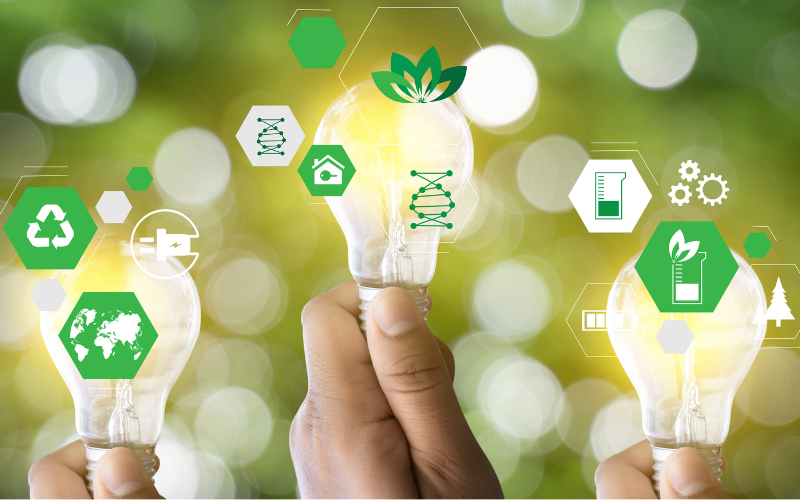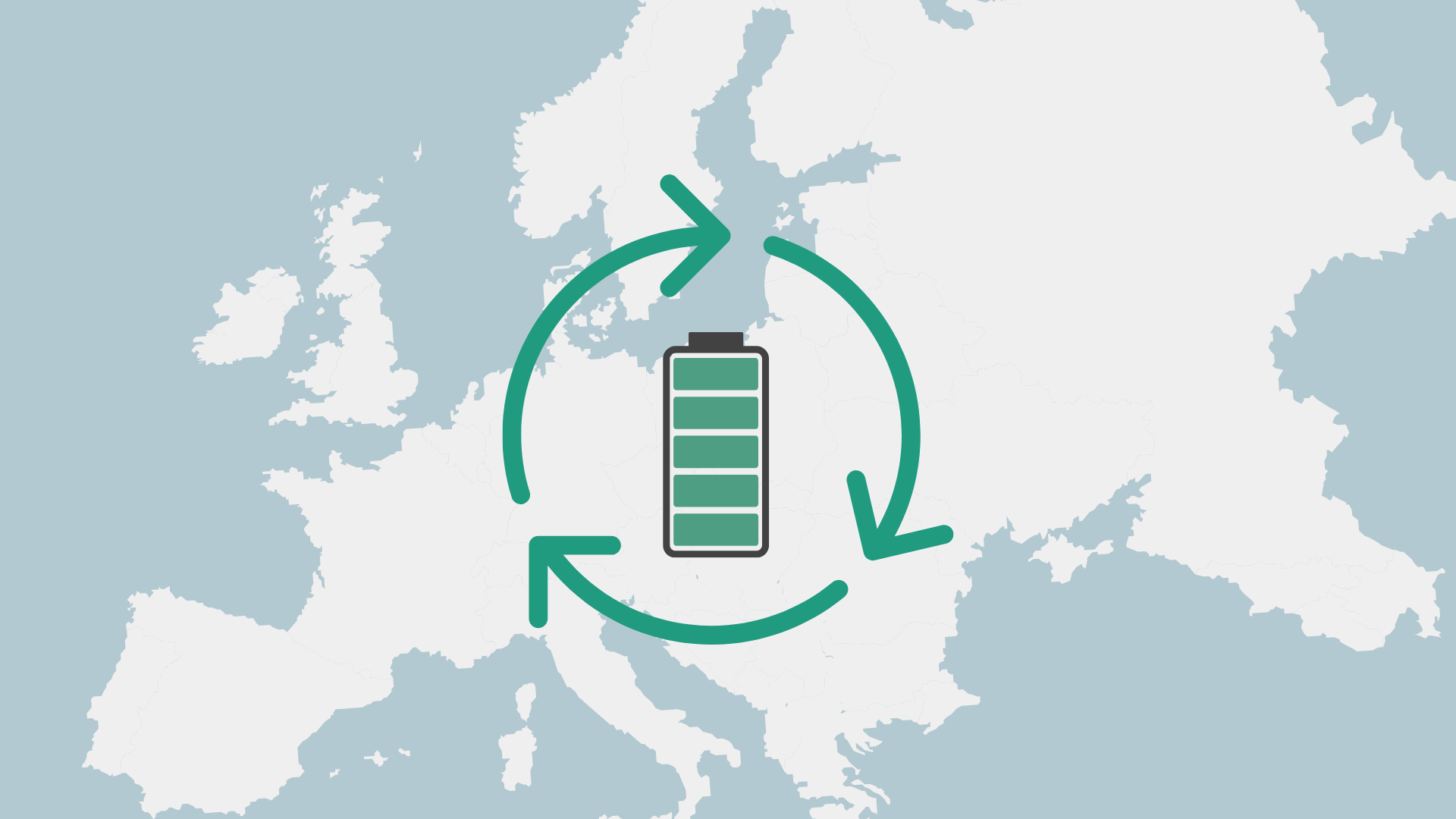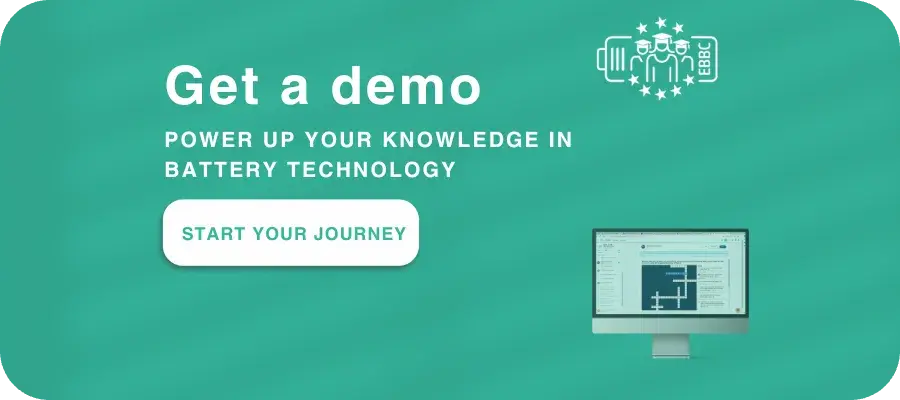On March 18, 2025, the European Battery Business Club (EBBC) hosted an expert talk that brought together three leading protagonists from academia and industry to discuss the urgent issue of battery recycling in Europe. This event coincided with recent developments in the European Union’s regulatory landscape, particularly the introduction of stricter recycling mandates that aim to boost the circular economy. The growing emphasis on sustainable practices has sparked discussions on how the battery recycling sector can evolve to meet these new challenges and opportunities. As Europe pushes toward a greener future, understanding the complexities of battery recycling becomes imperative. This blog summarises our expert’s key assessments on the contemporary battery recycling landscape in Europe.

Dependence on Global Supply Chains: A Call for Recycling
The reliance of the European battery production sector on global supply chains poses significant strategic risks. Maximilian Stephan, researcher at the Department of Emerging Technologies at Fraunhofer ISI, articulates this concern, stating, “The European battery production is highly reliant on the import of raw materials and critical components, especially from China.” This dependence not only jeopardizes the stability of supply chains but also raises alarms over the implications of geopolitical shifts on the green transition and industrial competitiveness.
Battery recycling emerges as a viable solution to mitigate these risks. By treating end-of-life batteries as valuable resources rather than waste, Europe can develop an in-house supply of strategic materials such as lithium, cobalt, and nickel. This approach not only reduces reliance on unpredictable global markets but also enhances the security of supply chains within Europe. Furthermore, the establishment of a robust recycling infrastructure can contribute to the development of a circular economy, minimizing environmental impact and ensuring the sustainable use of resources. As Europe strives to create a more resilient battery supply chain, the integration of recycling practices becomes paramount.
Ecological Sustainability: The Green Advantage of Recycling
The ecological advantages inherent in battery recycling are profound and cannot be overstated. Dr. Johannes Woth from the Fraunhofer Research Institution for Materials Recycling and Resource Strategies IWKS emphasizes, “Recycling batteries often yields more strategic materials than traditional mining methods.” This fact highlights the environmental benefits of sourcing materials from recycled batteries, which typically contain higher concentrations of valuable metals compared to newly mined ores.
Moreover, Justo Garcia, Head of Financing Strategy for the Battery Project at Orano Group, notes that incorporating recycled materials into new battery production can lead to a significant reduction in greenhouse gas emissions. “It could be estimated that using recycled content in batteries can reduce the carbon footprint by approximately 30%,” he claims. This reduction is crucial as industries aim to lower their carbon emissions while maintaining competitiveness. The increased focus on ecological sustainability aligns with the evolving regulatory frameworks in Europe, which mandate higher recycling rates and emphasize the importance of reducing waste.
In addition to these ecological considerations, the recycling process itself offers a more efficient means of material extraction. The technologies utilized in recycling, such as hydrometallurgy and mechanical processing, allow for the efficient recovery of metals with lower energy requirements than traditional mining. Such advancements not only minimize environmental degradation but also enhance the economic viability of battery recycling, thus promoting the transition to a more sustainable industrial paradigm.
Navigating the Regulatory Landscape: Opportunities Ahead
As Europe strengthens its regulatory framework with initiatives like the EU Battery Regulation and the Critical Raw Materials Act, new opportunities for battery recycling are emerging. These regulations set ambitious targets for domestic sourcing and production, aiming to enhance sustainability and resource efficiency. Maximilian Stephan explains, “The new regulations are pushing the industry towards more responsible recycling practices,” illustrating how policy can drive innovation and create a more favourable environment for recycling initiatives.
However, the implementation of these regulations presents its own set of challenges. The inconsistency in battery waste classification across different countries complicates logistics and hinders the development of cohesive recycling strategies. Justo Garcia points out that “the black mass, a concentrated form of battery materials, is often exported to countries with less stringent regulations,” which undermines Europe’s recycling efforts. This situation highlights the need for harmonized regulations that facilitate the efficient processing of battery waste within Europe.
To effectively capitalize on these regulatory frameworks, the industry must invest in advanced recycling technologies and infrastructures. Establishing facilities capable of handling diverse battery chemistries is essential for ensuring that recycling processes are economically viable. Dr. Woth notes that technological advancements are crucial for increasing recycling rates and reducing costs, thereby enhancing the competitiveness of the European battery recycling market. Collaborative efforts between policymakers, industry leaders, and researchers will be vital in addressing the complexities surrounding regulatory compliance while fostering a robust recycling ecosystem.

A Sustainable Future Through Battery Recycling
The challenges and opportunities surrounding battery recycling in Europe are multifaceted and demand a comprehensive understanding of the sector’s dynamics. As articulated by the experts, addressing material dependency, enhancing ecological sustainability, and navigating regulatory landscapes are critical to developing a resilient recycling industry. The recognition of end-of-life batteries as valuable resources, coupled with advancements in recycling technologies, positions Europe to reduce its reliance on global supply chains while minimizing environmental impact.
Start your Learning on Battery Recycling Technologies!
Ready to take the first step toward becoming a battery recycling expert? Enroll into our Online Battery Training and get the know a whole unit on end-of-life regulations, EV battery disposal, battery dismantling and other aspects of recycling.
Or sign up for our free online course today and discover the potential for further learning with the European Battery Business Club.
Don’t miss out on the opportunity to gain essential knowledge in battery technology. The EBBC provides unique lifelong learning programs that can enhance your career and understanding of this vital industry. Enroll in our free course now and unlock your path to battery expertise!




